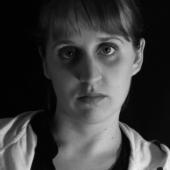What would you do?
I've seen Sir Alan Cumming's bare ass on stage twice. And both times, it was surrounded by Nazis.
The first time I saw Sir Alan Cumming's bare ass was in 2006. I was in London on a study abroad trip, and in the midst of a bunch of digital art exhibitions, I managed to score tickets to a West End production of Martin Sherman's Bent. The landmark play, originally written in 1979, was one of the first pieces of art to deal with the persecution of homosexuals in Nazi Germany. It was adapted into a lackluster film in 1997, but if you get the chance to see the play, take it.
The 2006 revival by Trafalgar Studios started off as almost a frothy sex comedy – Oops, I Fucked a Nazi! - where Cumming's character Max drunkenly brings home a well endowed Nazi soldier from the club to the consternation of his sensitive partner. They bicker and fight as the nude (and erect) SA officer pads sleepily through their kitchen.
Unbeknownst to Max, this is the Night of the Long Knives, and Nazis swarm the apartment, cut the SS officer's throat and splatter his blood across the high walls. Then, they literally tear the place apart. The actors broke apart the scenery and ripped down columns, gleefully humping the set pieces to the sounds of Wagner and literal columns of flame.
I was shocked. I've seen a lot of fictional Nazis, but these were a far cry from the efficient, faceless monsters I had seen before. They weren't the sneering baddies Indiana Jones punched. They were frat boys. Violent, unfettered frat boys who could cut a throat like they'd open a beer.
Some reviewers were taken aback by this. The Guardian found the director's “aura of flamboyant excitability at odds with a movingly restrained play.” But I found the tonal whiplash effectively unsettling. As an American in the 21st century, Nazis seemed far away. But this sort of youthful destructive rage felt closer, more human. It magnified the despair and horror that followed in their wake because I was so very unprepared. It put me in Max's shoes as he struggled to navigate the nightmare his life became. It made the shards of hope and humanity he eventually finds in Dachau all the more crucial.
The “Bad Men”
Nazis make their way on stage in less adult entertainment too. Many years ago, a friend's very young daughter was obsessed with the The Sound of Music, but she hadn't ever watched the whole movie. They listened to the song and watched some clips, but her mother didn't think she was ready for the Nazi conversation. A well meaning relative got the kid a pop up book of the musical, and as the kid flipped through it, she stopped on the concert page and noticed all the scary looking people in armbands and asked her mom who they were.
She thought fast. “Those are the bad men,” she said, and hoped to leave it at that.
From that moment on, the bad men invaded. There were no more monsters under the bed, there were bad men. They weren't just playing sardines, they were hiding from the bad men.
This was before she knew her great grandmother's stories of fleeing Europe in the 1930s, before she carried any specific fear with her Jewish heritage, before she fully understood who those bad men were and what they represented to her. Even without a deeper understanding, a shallow glimpse of those bad men gave all her fears a shape.
And last weekend in Virginia, those fears took shape again, as angry young white men put on their costumes and did their choreography so they would be recognized as Nazis.
Symbols and Set Dressing
With the rise of actual Nazis, the portrayal of fictional Nazis carries more baggage. A production of Mel Brook's musical The Producers in a upstate New York High School was canceled over their use of swastikas on the set last year. Columnist Derek Lee Miller shared his evolving thoughts on the controversy in his News and Notes pieces, noting the slippery distinction between symbols of hate and the hate itself.
Although when he wrote his March column, the alt right was still tap dancing around the trappings of Nazi-ism, instead of carrying it aloft with tiki torches.
As Miller noted, “You can see the fallout of that logic in modern hate-mongers claiming that they're not actually hate-mongers because they don't use the symbols of their predecessors. After all, if Richard Spencer doesn't use the symbology of the Third Reich, he can't possibly be a Nazi, right? If they don't wear white hoods, then they're "patriots", not "Klansmen", right?
No! That's not right at all! Context is everything, kids.”
Brooks, who literally fought Hitler clearing land mines in WWII, bases his musical farce on the assumption that a show glorifying Nazis would be so distasteful to the American public that the show would close immediately. In 2017, I don't know that we can make that assumption.
Wilkommen, Bienvenue, Welcome
Serenbe Playhouse near Atlanta Georgia, with whom I have a long-time artistic affiliation, is currently in the midst of a production of Kander & Ebb's Cabaret. When their promotional images were published, the theater received pushback from members of the community around a specific image of a shirtless man with a swastika armband in a pose reminiscent of bondage. Some felt that the sexuality of this image was in poor taste considering the rise of blatant Nazi symbols and beliefs in the United States. One of the more popular critical posts was signed “A Queer Jew Who Didn't Need to See Another Swastika Today.” The theater took the photo down.
I've seen Cabaret several times, including a production in Berlin on my study abroad trip in 2006, and the recent Roundabout revival at Studio 54, starring Sir Alan Cumming (and once again, his bare ass.)
Reflecting back on the show, I'm not thinking about doomed Sally Bowles and naive Cliff caught up in the swirl of fascism, or even the slinky Emcee prowling around the stage.
I find myself thinking of Fraulein Schneider, Cliff's pragmatic landlady who falls in love with a Jewish fruit seller, Herr Schultz. Their romance is tentative and tender, sweet as a Hawaiian pineapple. But, when their engagement party turns into an impromptu Nazi rally, Fraulein Schneider chooses to give up and calls their marriage off.
In her bitter second act song, “What Would You Do?” she defensively turns the tables on Cliff, claiming she is too old and tired to fight any more:
Suppose simply keeping still
Means you'll manage until
the end?
What would you do, my brave, young friend?
I'm a white woman. I look straight on paper. There's a good chance I can stay out of this whole thing. It's not really my neck on the line.
“Politics,” Sally Bowles says, “what does that have to do with us?”
Over and over again, the characters in Cabaret stay distracted and dismissive, as fascism creeps in around them. Even when a brick is thrown through his window, Herr Schultz is quick to downplay everything. “It's nothing. Children on their way to school. Mischievous children.”
When we see Nazis on stage, we often see people who don't see them. Who pick up a cute German officer, or carry a few smuggled packages, or even ignore the anti-Semitic jokes and dangerous undertones of the conversations around them. Until it's too late. The modern audience can look back and wonder how they could be so naive and foolish and cowardly. But we shouldn't just look back. We should look around now.
This is not the time to keep still. The bad men are not just in the picture books, they are in the streets and they are not even bothering to hide their faces. This is the time to speak out, to show the people we love that they matter, to make angry joyous immediate timeless art. We need to show our bare bisexual Scottish asses to Nazis in defiance. We need to make spaces for the voices they want to silence.
This is not just a play. We need to get the ending right this time.




